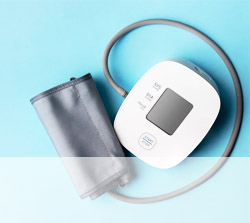Recent Publications
Explore Recent Published Reports
-
South & Central America Neurostimulation Devices Market Forecasts to - COVID-19 Impact and Analysis
Read More...
Publication Month: Apr 2024 | No. of Pages: 68 | Status: Published -
Middle East & Africa Neurostimulation Devices Market Forecasts to - COVID-19 Impact and Analysis
Read More...
Publication Month: Apr 2024 | No. of Pages: 70 | Status: Published -
Asia Pacific Neurostimulation Devices Market Forecasts to - COVID-19 Impact and Analysis
Read More...
Publication Month: Apr 2024 | No. of Pages: 86 | Status: Published -
Europe Neurostimulation Devices Market Forecasts to - COVID-19 Impact and Analysis
Read More...
Publication Month: Apr 2024 | No. of Pages: 91 | Status: Published -
North America Neurostimulation Devices Market Forecasts to - COVID-19 Impact and Analysis
Read More...
Publication Month: Apr 2024 | No. of Pages: 85 | Status: Published -
South & Central America Medical Courier Market Forecasts to - COVID-19 Impact and Analysis
Read More...
Publication Month: Apr 2024 | No. of Pages: 76 | Status: Published
Key Features
Getting the most from our research through Subscription
Clients often spend their valuable time and efforts gathering information about potential revenue streams. As information gathering is one of the critical functions of doing business, we, therefore, ensure you do not lose customers or hot revenue pockets from the total addressable market. Our subscription product is designed to help you achieve business goals with our ever-growing reports repository. The key findings from the reports highlight crucial and progressive industry trends in the global market, thereby allowing players across the value chain to develop effective long-term strategies. Our reports provide a clear picture of the potential revenue pockets to your organization, so that you can build strategies toward the company growth. Our reports are useful for both corporate and academic professionals, as well as consulting, research firms, PEVC firms, and professional services firms.
The Industry reports available in the Business Market Insights repository provide an in-depth analysis on various market topics and enable you to line up remunerative opportunities. Whether you plan to make a venture into new market or are a seasoned player in it, these reports are designed to help you in decision-making process. We focus upon client objectives, use standard research methodologies and exclusive analytical models, combined with robust business acumen to provide precise and insightful results. Our team has been performing studies fixated on Brand Perception and Awareness, Market Opportunity Assessment, Industry Analysis, Go-to-Market Strategy, and Unmet Need Assessment. The market insights provided by us are supported by the extensive primary and secondary research using proprietary and publicly available databases, journals, competitor websites, financial reports, and industry literature. We provide tailored analysis of niche and upcoming markets of interest that could influence every industry. Our ready-made reports are carefully crafted to meet the continually changing needs of your business.
The company research in the Business Market Insights subscription covers innumerable global players (existing and emerging) in different markets. We cover the entire spectrum of value system including suppliers, manufacturers, and distribution channels across the world. We provide an in-depth analysis, market related news, and detailed company profile to give you comprehensive insights into the industry. The companies are profiled on the basis of several parameters, such as company revenue, product portfolio, and geographic presence. We summarize various Strengths, Weaknesses, Opportunities, and Threats of over 1,000 companies. We also cover M&A, strategic alliances, and other strategic developments for an all-inclusive view of investment opportunities, thereby providing substantial insights to aid in decision-making process and helping in designing strategies to develop/modify business expansion plans.
About Us
Business Market Insights, our subscription service, serves as an ideal solution platform for all your research requirements. The industry and company research reports let you understand the market dynamics across various sub-segments and geographies. This can help you understand the Total Available Market (TAM) and how much you need to value them considering Serviceable Available Market (SAM) for your organization.
We specialize in industries such as Electronics & Semiconductor; Aerospace & Defense; Automotive & Transportation; Energy & Power; Healthcare; Manufacturing & Construction; Food & Beverages; Chemicals & Materials; and Technology, Media, & Telecommunications.
We deliver quality market research information and help our clients to make the conscious business decisions at an affordable price. We are committed to provide the highest quality services to our customers.
- Market Scenario: Describe the broad market scenario and provide insightful information on drivers, restraints, opportunities, and future trends.
- Market Features: What are the fastest-growing segments and countries of the industry? Who are the main market participants? What are the strategies adopted by them to secure or maintain the leading positions?
- Trends: How is it trending in terms of growth, new participants, and new products?
- Stability: How stable the industry has been historically and how dynamic is it in the current scenario? What are the growth rates of the market at various levels?
- One stop platform for all your market insight information needs
- Avoid Long Purchase Procedures
- Fast and Easy Access
- Cloud-Based Platform
- News Updates
- Affordable Product, Pay as Per Requirement
- Ask the Analyst Support
- Pay Monthly Subscription and Access All You Want
- No Compulsion for Yearly Subscription
- Reports Read or Download Access
- Subscription Duration: Starts with Just 30 Days
- Monthly New Reports Added
- Plans start $299
-
Insight Library
One stop platform for all your market insight information needs -
Monthly Subscription
Pay monthly subscription and access all you want. Plans start $299. -
Pay as per Requirement
Pay as per Requirement. Affordable Product. No Compulsion for Yearly Subscription -
Free Trail Access
5 Day Free Trial For Limited Read Access to your Platform. Easy Trial Access. No Credit Card required
Our Clients



























